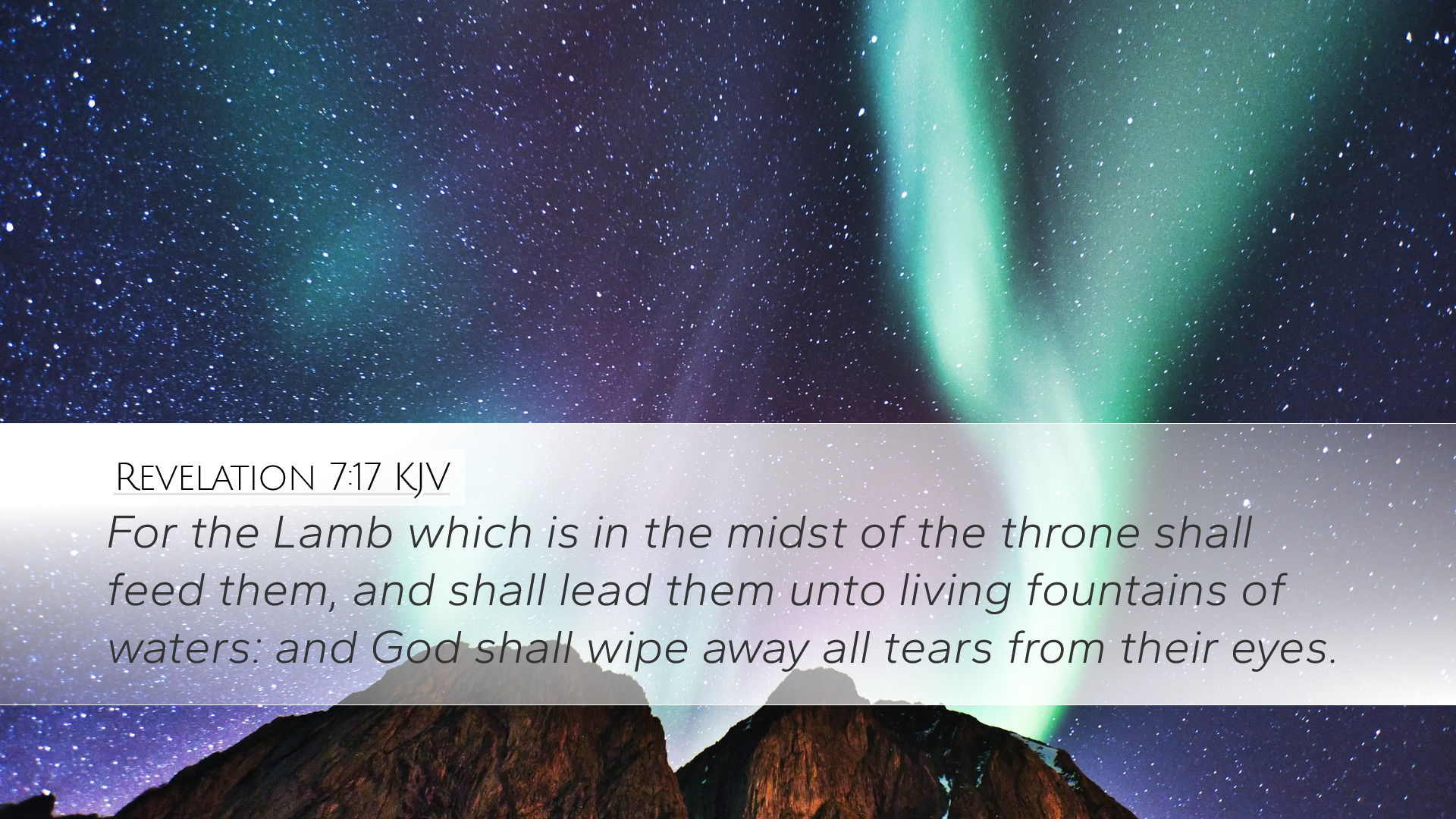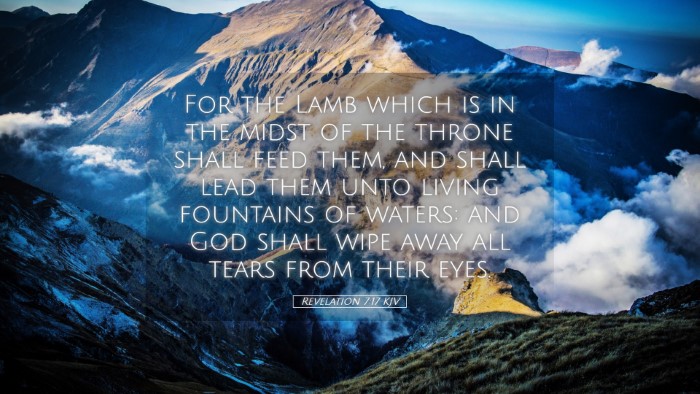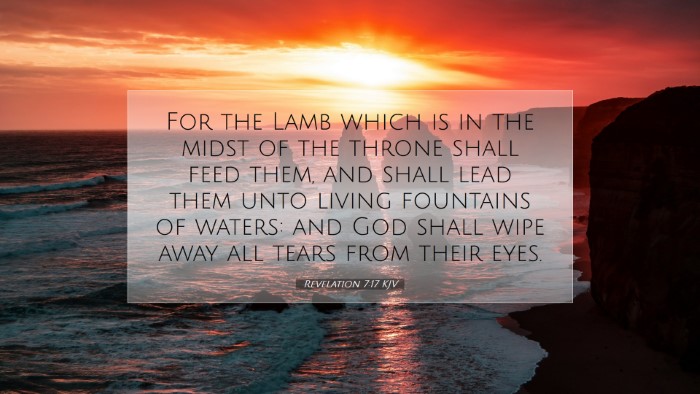Commentary on Revelation 7:17
Verse Context: Revelation 7:17 states, "For the Lamb who is in the midst of the throne will shepherd them and lead them to living fountains of waters. And God will wipe away every tear from their eyes." This verse encapsulates both the pastoral care of Christ and the ultimate hope of eternal comfort for believers.
Introduction
This commentary seeks to explore the rich theological implications and pastoral relevance of Revelation 7:17, drawing insights from Matthew Henry, Albert Barnes, and Adam Clarke. Each of these scholars contributes to a deeper understanding of the imagery and promises embedded in this powerful verse.
The Lamb at the Center
Matthew Henry emphasizes the significance of the "Lamb" as a central figure in this vision. He writes that the identity of the Lamb—representing Christ—highlights His role as both the sacrificial offering and the reigning king. The presence of the Lamb 'in the midst of the throne' signifies His divine supremacy and active leadership in the heavenly realm.
Albert Barnes elaborates on this by stating that the metaphor of the Lamb underscores the gentleness and care of Christ. In a world that often experiences darkness, the image of Jesus as a shepherd offers profound reassurance to believers, affirming that they are under His watchful eye.
Adam Clarke notes that this depiction of the Lamb also connects to the Jewish understanding of sacrificial lambs, thereby inviting early readers to reflect on the Passover and its fulfillment in Christ. The Lamb's position is not only a statement of His atonement but also of His eternal authority in heaven.
Shepherding and Guidance
The next part of the verse speaks about the Lamb shepherding His people. Matthew Henry explains that this shepherding is direct, intimate, and personal. The image of shepherding evokes care, guidance, and protection. The faithful believer is assured that they will be stewarded gently through life's tribulations into eternal rest.
Albert Barnes adds that this shepherding references the idea of leading to "living fountains of waters." This metaphor serves both practical and spiritual purposes: it symbolizes sustenance and refreshment from the presence of God, contrasting the barrenness and struggles of earthly life.
Adam Clarke further reflects on the biblical theme of water as essential for life, noting that the "fountains of waters" signify the endless supply of divine grace and spiritual nourishment provided to God's people. Spiritual thirst will be quenched in the eternal presence of God.
Comfort and Hope
Finally, the verse concludes with the promise that "God will wipe away every tear from their eyes." This assurance of comfort is profound and foundational in Christian hope. Matthew Henry asserts that this promise speaks to the ultimate erasure of sorrow and suffering. He suggests that every tear shed in this life, every moment of grief, will not be overlooked in the eternal economy of God’s love.
Albert Barnes points out that this divine act of wiping away tears signifies not only the end of suffering but also indicates an intimate relationship between God and His people. It brings to mind the closeness of God’s presence, as He Himself attends to the wounds of His beloved.
Adam Clarke concludes by asserting that this imagery of God wiping away tears serves as a promise of restoration and healing. It reassures believers of a future where pain is obsolete, which stands central to the Christian eschatological hope.
Theological Implications
This verse not only provides comfort but also rich theological implications regarding the nature of God, Christ, and the eschatological hope of believers. According to these scholars:
- The Nature of God: The depiction of God as one who actively wipes away tears illustrates His compassionate nature and deep involvement in the lives of believers.
- The Role of Christ: As the Shepherd and the Lamb, Christ exemplifies the dual roles of authority and tender care, blending majesty with mercy.
- The Promise of Eternal Life: The imagery surrounding living waters signifies the hope of eternal sustenance and satisfaction that believers will experience in heaven.
Conclusion
Revelation 7:17 serves as a poignant reminder of the profound hope offered to believers through Christ. The convergence of pastoral care, spiritual nourishment, and the promise of comfort presents a holistic view of the believer's experience in relation to God and Christ. By combining insights from Matthew Henry, Albert Barnes, and Adam Clarke, we gain a deeper appreciation of this verse's significance as a source of hope and strength for pastors, students, theologians, and Bible scholars alike.


